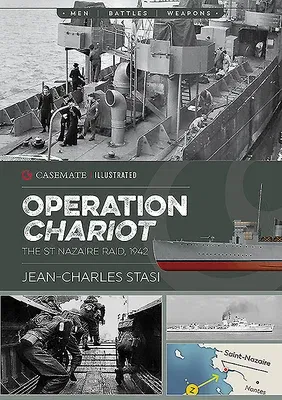A highly illustrated overview of Operation Chariot, the famous St
Nazaire raid, in 1942.
At the beginning of 1942, the Tirpitz, the heaviest battleship ever
built by a European navy and sister ship of the Bismarck, was on the
cusp of breaking out into the north Atlantic. The prospect of the huge
German battleship patrolling the Atlantic posed a huge threat to the
convoys that were the lifeline for an embattled Britain. Determined
efforts were made to damage the ship through bombing raids: these
failed. An altogether more daring and radical plan was conceived:
destroy the dry-dock facility at St Nazaire on the French Atlantic
coast, and without the use of the only suitable base for the ship, the
threat would be neutralized.
The plan was to ram the entrance gates with a ship packed with
explosives on a delayed fuse to give the men on board time to take
shelter before the ship exploded. A motor boat armed with torpedoes
would fire at the inner gate causing further damage to submarine pens.
The troops and crew would then destroy as many dockyard targets as they
could and withdraw in fast motor launches which had followed them in.
All this was to be achieved under cover of an air raid. HMS Campbeltown,
a US lend-lease destroyer was chosen for the task.
On the night of 27th March the raid commenced; heavy shelling killed or
wounded over half of the motor boat crews in the approach but the
Campbeltown succeeded in lodging its bows in the outer gates. On shore
fighting was ferocious and close-quartered. The delayed action fuses
detonated the high explosives in the Campbeltown's hold at noon on the
28th, killing over 400 German officers and men. The dock gates were
destroyed and were not repaired until after the war. The cost to the
Allies was high, of the 241 Commandos who took part, 168 were either
killed or captured. But the Tirpitz was never able to leave Norwegian
waters: the raid was an overwhelming success.
This volume in the Casemate Illustrated series gives a clear overview of
the planning and execution of the raid and its aftermath, accompanied by
125 photographs and images, including color profiles and maps.

